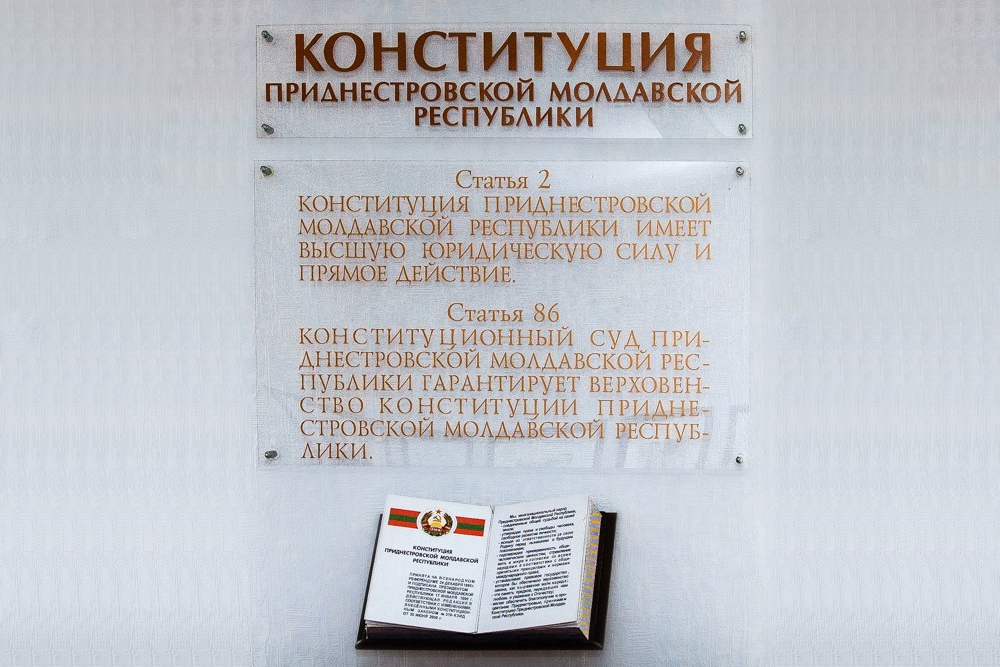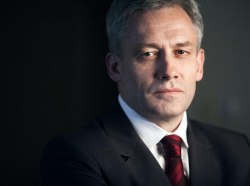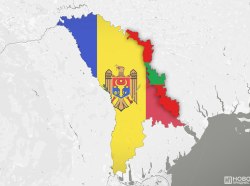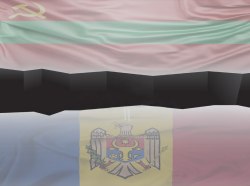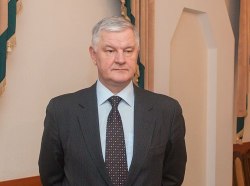23 years ago on a national referendum, the Constitution of the PMR was adopted. 81.8% of the Pridnestrovians who took part in the vote supported the offered text. On January 17, 1996, the text of the Constitution was signed by the President and it came into force. "Novosti Pridnestrovya" have a talk about the Main Law of the country with one of its authors – Anna Volkova, the State Councillor of the President of the PMR.
- Anna Zakharovna, you were a co-author of the Constitution of the PMR of 1995. Tell us please how the Basic Law of the republic was created.
- In 1990 documents of title were accepted: The resolution which proclaimed formation of the republic, The Decree about the Government, The Declaration on the formation of the Pridnestrovian Moldavian Soviet Socialist Republic. It was documented we supposed to be drafts of the Constitution. We hoped that we will manage to write the Basic Law of the republic by the end of the year, however, work on it was quite difficult. The first Constitution was adopted exactly in a year – on September 2, 1991, and it, as well as all allied constitutions, was "soft": 2/3 deputies at any time could make changes to any part of the Basic Law. There were many changes. For example, until December 1, 1991, the executive authority was headed by the Chairman of the Republic, then deputies made changes and the Institute of the President appeared.
- So the first Pridnestrovian Constitution was of the Soviet format?
- Of course, the Constitution of 1991 was the Constitution of the Federal Republic, the PMSSR was formed as a part of the Soviet Union. In it, there were such norms as a primacy of the Soviet Union laws over PMSSR laws, military service in the ranks of the USSR, prosecutor's office of the USSR and so on. At that time there was a preparation of the project of the new Union State, however in several months, the Soviet Union have collapsed. Respectively, it was necessary to change also the Basic Law of the republic considering the new realities.
In 1992 the Constitutional Commission was created. It sent to the Supreme Council the offer on necessary changes. But specifically, the draft of the Constitution of the PMR was developed by the Commission created in August 1995. By October the draft of the Basic Law of the republic was ready.
- What changes there were?
- Many international documents, in particular, the Universal Declaration of Human Rights, were taken as a basis. The section which still remains invariable is the rights and freedoms of citizens, a guarantee of their implementation. In the new Constitution, there are constant sections – bases of the constitutional system, the right, freedom, duty and order of change of the Main Law of the country. These sections can be changed only on a referendum.
- You noted that the Constitution of 1995 reflected new realities, particularly disappearance from the political map of the Soviet Union. What provisions reflected the new realities?
- If in the Constitution of 1991 it was told about PMSSR as a part of the Soviet Union, then in the Constitution of 1995 has already other formulation: a sovereign independent state. The first Constitution is a mould from the Constitution of the Moldavian SSR and the USSR. For example, the Supreme Council was two-chamber, as in the Soviet Union: Chamber of the Republic and Chamber of Nationalities. In the Constitution of 1995, we have Chamber of Legislators and House of Representatives. There are links with the Constitution of the Russian Federation accepted in 1993. And if to compare invariable sections then there will be a direct analogy.
- Does it mean that the course towards integration with Russia has been already planned then?
- Of course! The Russian Federation proclaimed itself the right successor of the Soviet Union. It was natural to us, especially after the war of 1992, after the Russian peacekeepers stopped the bloodshed.
- It is natural because Pridnestrovie supported the preservation of the Soviet Union, and, therefore, his successor is a political kernel of an attraction?
- Yes. It was the natural course of events for us.
- The draft of the Constitution was submitted for a referendum. How it was?
- In October 1995 the V Congress of Deputies of all levels assumed the Constitution as a basis, having suggested the Constitutional Commission to revise the main law of the country taking into account the wishes of citizens. And the already modified project was submitted for a referendum on December, 24. By the way, this day it was also the referendum on the entry of Pridnestrovie into the CIS.
- Were there some disputes between members of the commission during the work on the draft of the Constitution?
- Yes, arose! For example, Vasily Nikitich Yakovlev, the first rector of the Pridnestrovian State University, was a supporter of the socialist model of the country. Disputes arose also on ideology and went to the economic plane. At the same Congress, he suggested adopting, for example, the resolution in which transfer to rent of outlets would be forbidden.
- Tell about the Constitutional changes of 2000, please.
- Serious changes were made in 2000 and in 2011. It concerned the form of the Government: in 2000 the presidential republic was entered, and the Government was changed to the Chamber of Ministers. And in the 2011th the Government as in the Russian Federation was founded again, and the President stopped being the chief executive. If the first Constitution was transitional from Soviet to parliamentary, then in 1995 the Presidential parliamentary republic was entered. In 2000 the republic became and still remains presidential.
- Why the transition to the presidential republic was carried out?
- In the conditions of the international unacknowledgment, only the presidential republic can be rather effective. What is the President? This is the Head of the state. It is not only Commander-in-chief but also the guarantor of the Constitution. The President is responsible for working coordination of all authorities.
- What is the historical value of the Constitution of 1995?
- The chief sovereign in the democratic state is the people. It is very important that the main law of the country was adopted by the citizens.
The interview by Alexander Koretsky

